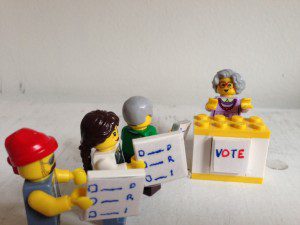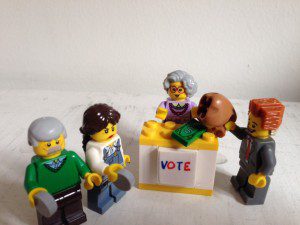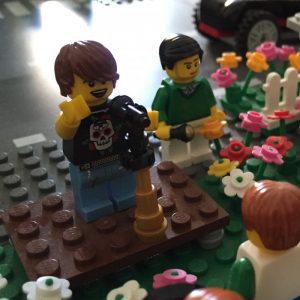Speak Out for Freedom of Expression (While We Can)
 It seems that democracy is under attack everywhere, from Ukraine, invaded by a brutal dictator and his brainwashed army (and country), to our own country once seen as the leader of the Free World. In the next few days, hearings will begin on the attempt 18 months ago to overturn the 2020 election and install the defeated Donald Trump as president, possibly for life. Those of us who celebrated with relief on November 7, 2020, when the major media networks announced Joe Biden as the president-elect, drastically underestimated the will of Trump and his supporters to hold onto power by any means necessary.
It seems that democracy is under attack everywhere, from Ukraine, invaded by a brutal dictator and his brainwashed army (and country), to our own country once seen as the leader of the Free World. In the next few days, hearings will begin on the attempt 18 months ago to overturn the 2020 election and install the defeated Donald Trump as president, possibly for life. Those of us who celebrated with relief on November 7, 2020, when the major media networks announced Joe Biden as the president-elect, drastically underestimated the will of Trump and his supporters to hold onto power by any means necessary.
Today I attended a banned books training session sponsored by PEN America, the U.S. chapter of an international organization devoted to freedom of expression. Jonathan Friedman, the newly-hired coordinator for issues related to the freedom to read and write, spoke about the role of the former president and his election campaign in bringing a minority of people together not only to ban books, but also to silence teachers and librarians, criminalize their work, erase LGBTA+ identities, and increase surveillance of marginalized populations and political opponents. In a sense, book banning is the tip of the iceberg as teachers and librarians find themselves the target of death threats and threats of prison time.
Friedman spoke about the dark money that funds these efforts, which are happening on a national level with groups like Moms4Liberty sending their armies to school board and other local and state-level meetings to disrupt and harass. The buzzwords these groups use are the same around the country, lifted from websites that are identical except for local details. Those buzzwords build on values we all share: liberty, common sense, safety, parents’ choice. They are anything but. Liberty is only liberty for themselves, the methods they use and their targeting of marginalized people make everyone else unsafe, and the only parents’ choice is their choice as they take away the choices of parents who disagree with them.
A national poll cited in the session showed that 80% of Americans disagree with book banning in schools and libraries. Even in rural Tennessee, one of the most conservative areas of the country, 68% support the right to read. Most people realize that once books are banned, soon enough their favorite books — including the romance genre and the runaway bestseller Fifty Shades of Gray and its spinoffs — will no longer be available. In fact, book bans that started in schools have quickly spread to public libraries, including book clubs for adult romance readers. And last month a Virginia state legislator and his attorney sued a Virginia Beach Barnes & Noble for carrying two books they considered obscene, Maia Kobabe’s memoir Gender Queer and Sarah J. Maas’s bestselling fantasy A Court of Mist and Fury. Despite the right’s professed support for capitalism and the marketplace, they are quick to restrict and repress companies that don’t do exactly what they want.
At the same time, resistance on the part of young readers and the adults in their lives have led to victories. During the 2019-20 school year, an intergenerational, racially and ethnically diverse committee in Central York, Pennsylvania, created a list of recommended titles for K-12 . One year later, nationally-funded and organized book banners used the same list to ban those books, many of them staples of the curriculum for more than a decade. After weeks of protests and a walkout at the high school, the books were returned to the schools and the list restored to its original purpose.
While the situation appears bleak because of the amount of dark money in support of the book banners and their superior organization at the present time, they are still a minority. After 30 years of increasingly diverse literature for young readers, teenagers have come to appreciate different perspectives and experiences, and they don’t want to give up that freedom and diversity, just as young women don’t want to give up their rights to control their bodies. No one wants their freedom taken away, especially when their lives and their futures depend on that freedom. As the book banners appeal to “common sense” to carry out their campaigns, we need to defend the rights of people to make their own choices. Parents can choose books for their own children and restrict those books as they see fit. They do not have the right to choose and restrict books for other people’s children. Nor do they have the right to erase the foundations of our democracy in the process by using fraud, intimidation, and terror against those with whom they disagree.
This is what’s happening in Russia right now. Over the past 20 years, books about LGBTQ+ people have been banned and their authors driven into exile. Book banning is the first step to creating a population driven by the most absurd propaganda to support genocidal tyrants like Vladimir Putin. One of Germany’s greatest poets, Heinrich Heine, wrote in the nineteenth century, long before the rise of Hitler, “Where they burn books, they will also ultimately burn people.”
So what can we, the majority, do? I’ve already mentioned the importance of mobilizing young readers and the adults in their lives. While some have sought to buy and send banned books to communities that have experienced these assaults on their freedom to read, that is not an effective strategy. In the first place, teachers and librarians don’t know what to do with hundreds of unsolicited books. Second, supporting an individual banned book helps one lucky author (or author’s estate, because many of these books are decades-old classics) but does nothing for the hundreds of authors whose books are less prominent, whose books don’t get published because the publisher doesn’t want controversy, or who decide not to write the book at all. Finally, the sales of these well-known banned books convinces too many people that book banning has little impact when it has an enormous impact on what gets published and what people of all ages are able to read. A better strategy would be to mobilize people to attend school board meetings, to run for local and state offices, to make freedom to read (and democracy in general) the single issue and to vote in every election. If we are the majority, we need to use our power while we still have it.
For more information, resources, organizational tools, and assistance if you are on the front lines of a book-banning campaign, you can contact PEN, the National Coalition Against Censorship, or the American Library Association.









El que no lee, está condenado a creer lo que le dicen y a eso apuntan los que sensuran. Se siente un retroceso a la Edad Media con la Santa Inquisición donde se obligaba a creer en vez de razonar. Qué maravilloso sería que las bibliotecas fueran más importantes que los bancos. Hago mía la frase del gran humanista José Luis Sampedro: “Sin libertad de pensamiento de nada sirve la libertad de expresion”.